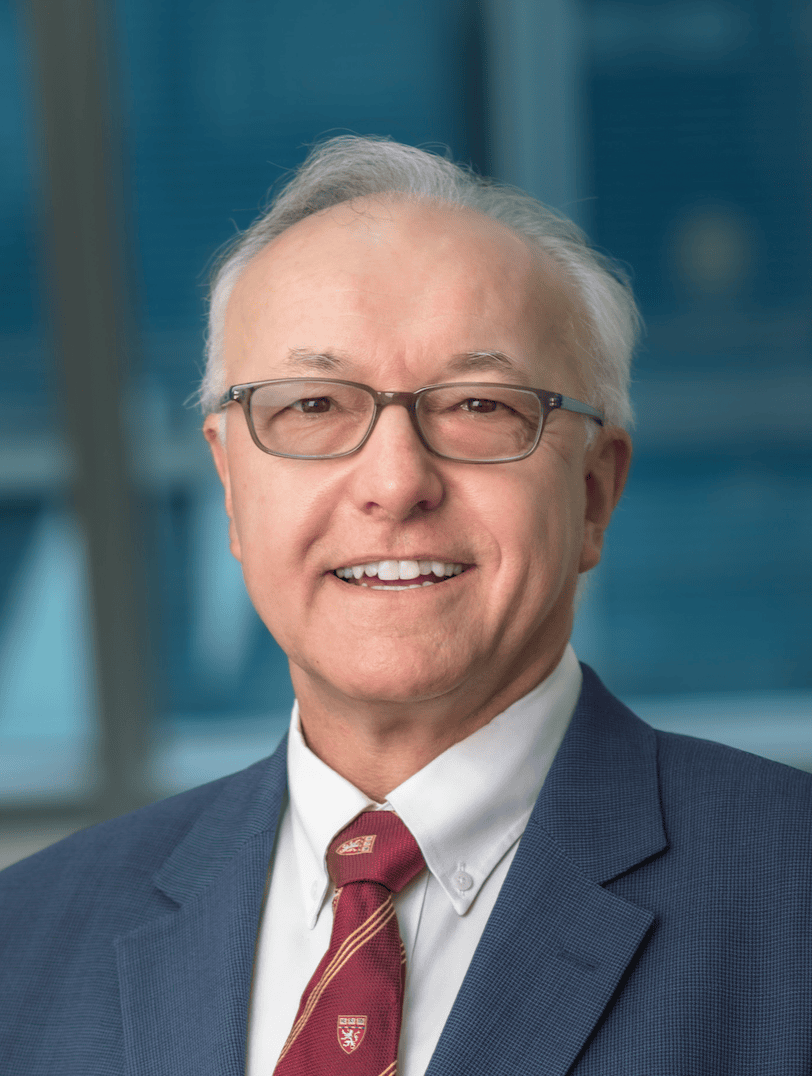Biosketch
George Q. Daley is dean of Harvard Medical School and the Caroline Shields Walker Professor of Medicine. Daley earned his A.B. magna cum laude from Harvard, his PhD in biology at MIT with David Baltimore, and his MD summa cum laude from HMS. He trained in medicine at the Massachusetts General Hospital and in hematology/ oncology at the Brigham and Women’s and Boston Children’s Hospitals. He served as chief resident in medicine at MGH, and joined the MGH heme/onc faculty while running a laboratory as a Whitehead Fellow at the Whitehead Institute. He later moved to Boston Children’s Hospital, where he practiced hematology and directed the Pediatric Stem Cell Transplantation Program at Dana-Farber/Boston Children’s. He became professor of biological chemistry at HMS in 2010 and an investigator of the Howard Hughes Medical Institute from 2007 until 2017, when he resigned to become Dean. Daley was an inaugural winner of the NIH Director’s Pioneer Award and has received the American Philosophical Society’s Judson Daland Prize, the American Pediatric Society’s E. Mead Johnson Award, the American Society of Hematology’s E. Donnall Thomas Prize and the International CML Foundation’s Janet Rowley Prize. He has been elected to the National Academy of Medicine, American Academy of Arts and Sciences, Association of American Physicians, and the American Society for Clinical Investigation. Daley has authored international guidelines for stem cell research and clinical translation through his work with the International Society for Stem Cell Research, where he served as president (2008).
Research Interests
Bridging cancer research and stem cell biology, Daley investigates blood formation, leukemogenesis, cellular reprogramming, and the directed differentiation of pluripotent stem cells to model human disease and develop novel therapies. His early studies implicated BCR/ABL in Chronic Myeloid Leukemia, stimulating the development of imatinib/ Gleevec, while later work uncovered mechanisms of drug resistance, informing the design of ponatinib, and asciminib. His laboratory has revealed the broad influence of LIN28 RNA-binding proteins and let-7 microRNAs in oncogenesis and metastasis, germ cell development and tumorigenesis, cellular metabolism and diabetes, tissue regeneration, and somatic cell reprogramming. A long-standing focus has been understanding how hematopoietic stem cells (HSCs) arise in the mid-gestation mammalian embryo, uncovering developmental, epigenetic, and biomechanical mechanisms that specify their identity. These insights have guided the in vitro generation of engraftable murine and human HSCs and the derivation of therapeutic blood lineages from pluripotent stem cells. Daley’s group has developed computational tools to assess the fidelity of stem cell differentiation and to map cell–cell communication, and has applied reprogramming to create disease-specific human iPS cells, uncovering key epigenetic and metabolic determinants of pluripotency, lineage commitment, and disease pathogenesis. Current work employs synthetic biology to design soluble Notch agonists and Multispecific T Cell Engagers (MiTEs) to advance cell manufacturing and immunotherapy.
Membership Type
Member
Election Year
2025
Primary Section
Section 41: Medical Genetics, Hematology, and Oncology
Secondary Section
Section 22: Cellular and Developmental Biology
